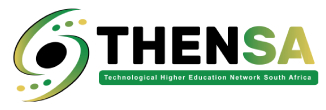The future of work is rapidly evolving, driven by advancements in technology, shifts in the global economy, and changing demographics. As we look ahead, it becomes evident that the workforce of tomorrow will face unique challenges and opportunities.
Preparing tomorrow’s workforce and work-ready graduates is not just a matter of providing technical skills. It also involves equipping individuals with a diverse set of skills that encompass adaptability, critical thinking, and a keen understanding of emerging technologies.
We will explore the challenges that await the workforce of tomorrow and discuss strategies that prepare them and help them thrive in this dynamic and ever-changing environment.
The Changing Landscape of Work
The workforce of tomorrow will operate in a vastly different landscape compared to previous generations. Several key trends are reshaping the world of work:
Automation and Artificial Intelligence: Automation and AI are automating routine tasks across various industries. While this can boost productivity, it also raises concerns about job displacement.
Remote Work and Digital Transformation: The COVID-19 pandemic accelerated the adoption of remote work and digital transformation. These changes have made geographical boundaries less relevant, opening new opportunities for global collaboration.
Gig Economy: Although the gig economy is on the rise, offering flexible work arrangements, it also creates job insecurity and a lack of traditional benefits.
Demographic Shifts: Ageing populations, as well as increased migration, are altering the composition of the workforce. Managing a diverse and multigenerational workforce will increasingly become a challenge.
Challenges in Preparing Tomorrow’s Workforce
Considering these shifts and preparing tomorrow’s workforce involves tackling a wide range of pressing challenges that will see workforces evolve.
From bridging the skills gap and promoting lifelong learning to ensuring digital literacy and encouraging inclusivity, tomorrow’s workforce will have to become adaptable.
Skills Mismatch: There is a growing gap between the skills demanded by employers and those possessed by the workforce. This skills mismatch may hinder economic growth and individual career prospects.
Continued development: In a rapidly changing job market, individuals will have to embrace continued professional development and learning to remain current. However, access to affordable and quality education remains a barrier for many.
Digital Literacy: Proficiency in digital tools and platforms is no longer a luxury but a necessity, yet many individuals lack access to digital resources, training and even electricity.
Inclusivity and Diversity: Ensuring that the workforce is inclusive and diverse is a challenge that requires effort and initiative from organisations and policymakers alike.
Strategies for Preparing Tomorrow’s Workforce
Preparing tomorrow’s workforce demands a multifaceted approach. This means addressing challenges through;
- Education reform
- Lifelong learning
- Digital inclusion
- Diversity programmes
- Upskilling and Reskilling
- Support for entrepreneurship
- Global collaboration
- AI integration
- A focus on well-being, and
- Progressive policies.
This comprehensive strategy equips individuals to excel in an ever-evolving work environment.
Curricula Reform: The foundation of a skilled workforce begins with education. Schools and universities should prioritise the teaching of critical thinking, problem-solving, and digital literacy skills alongside traditional subjects. Curriculum flexibility and adaptability to emerging technologies is essential and undebatable.
Lifelong Learning Initiatives: Governments and organisations should invest in lifelong learning programmes that are accessible and affordable. This includes online courses, vocational training, and upskilling opportunities for workers at all stages of their careers.
Digital Inclusion: Bridging the digital divide is crucial. Efforts should focus on providing internet access to underserved areas, subsidising digital devices, and offering training in digital skills.
Inclusivity and Diversity Programmes: Organisations should implement diversity and inclusion initiatives that promote a welcoming and equitable workplace. This includes addressing bias in hiring practices and providing equal opportunities for all employees.
Upskilling and Reskilling: Companies should take an active role in reskilling and upskilling their employees to meet changing demands. This includes identifying skill gaps and offering training programmes that align with industry trends.
Support for Entrepreneurs: Encouraging entrepreneurship can create job opportunities and promote innovation. Governments can provide support through grants, mentoring programmes, and simplified regulations for startups.
Global Collaboration: The global nature of work means that collaboration becomes an essential skill. Education and training should emphasise cross-cultural communication and global perspectives.
Embracing AI and Automation: Instead of fearing job displacement due to automation, individuals and organisations should focus on leveraging AI and automation as tools to augment human capabilities. This requires a mindset shift and investment in developing and growing digital skills.
Health and Well-being: Promoting mental and physical health in the workplace is key. Healthy and happy employees are more productive and adaptable.
Government Policies: Policymakers should encourage forward-thinking policies that support workforce development, including tax incentives for training, affordable healthcare, and portable benefits that accommodate a gig economy.
NAVIGATING CHANGES OF THE NEW World of work
Preparing tomorrow’s workforce and work-ready graduates is a complex and ongoing process that requires collaboration between governments, educational institutions, and businesses. As we navigate the challenges of the changing work landscape, it is imperative that we prioritise skills development, inclusivity, and adaptability.
By doing so, we can empower individuals to thrive in tomorrow’s workforces, ensuring their personal success, as well as the economic prosperity of the country and the overall well-being of society.
As we embrace the ever-evolving landscape of work, we must bear in mind that the key to success is not just in adapting to change but in the transformation of higher education, innovation, and inclusive policies.

